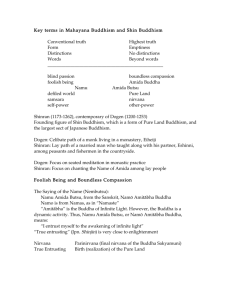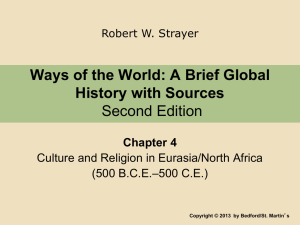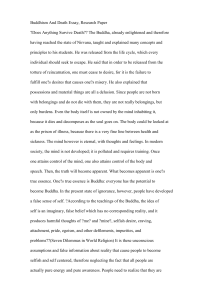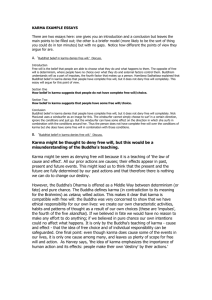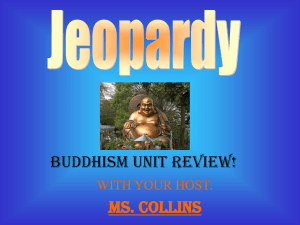Nov - Shinshu Kyokai Mission
advertisement
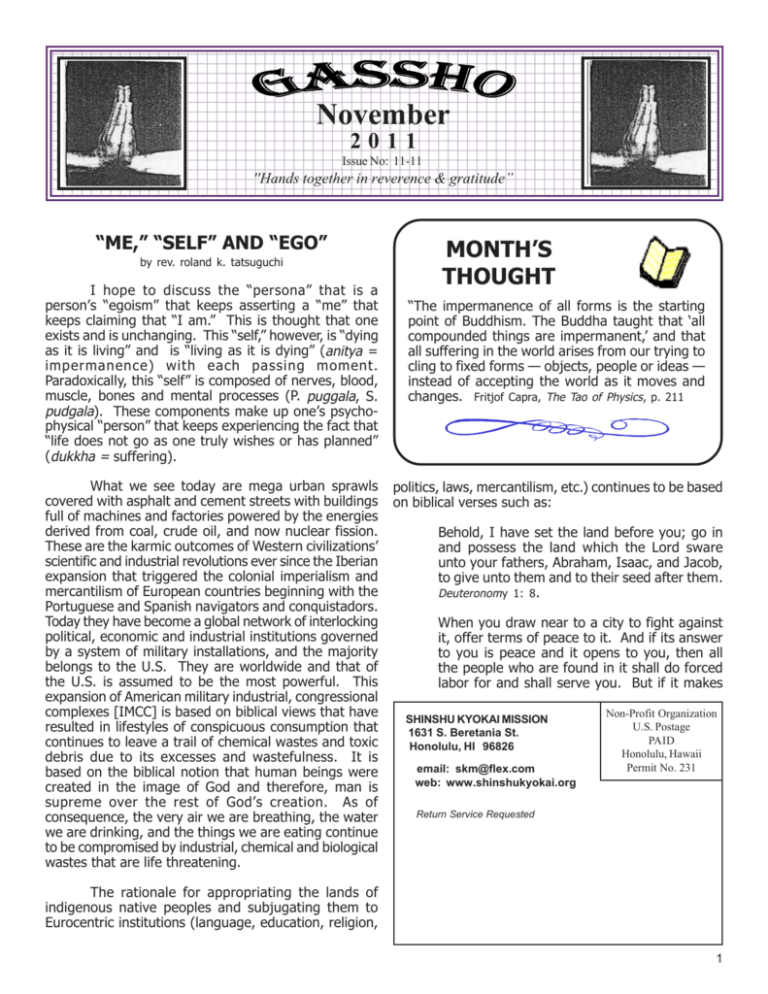
1234567890123456789012345678901212345678901234567890123456789012123456 1234567890123456789012345678901212345678901234567890123456789012123456 1234567890123456789012345678901212345678901234567890123456789012123456 1234567890123456789012345678901212345678901234567890123456789012123456 1234567890123456789012345678901212345678901234567890123456789012123456 1234567890123456789012345678901212345678901234567890123456789012123456 1234567890123456789012345678901212345678901234567890123456789012123456 1234567890123456789012345678901212345678901234567890123456789012123456 1234567890123456789012345678901212345678901234567890123456789012123456 November 1234567890123456789012345678901212345678901234567890123456789012123456 1234567890123456789012345678901212345678901234567890123456789012123456 1234567890123456789012345678901212345678901234567890123456789012123456 2011 1234567890123456789012345678901212345678901234567890123456789012123456 1234567890123456789012345678901212345678901234567890123456789012123456 Issue No: 11-11 1234567890123456789012345678901212345678901234567890123456789012123456 ''Hands together in reverence & gratitude” 1234567890123456789012345678901212345678901234567890123456789012123456 1234567890123456789012345678901212345678901234567890123456789012123456 “ME,” “SELF” AND “EGO” by rev. roland k. tatsuguchi I hope to discuss the “persona” that is a person’s “egoism” that keeps asserting a “me” that keeps claiming that “I am.” This is thought that one exists and is unchanging. This “self,” however, is “dying as it is living” and is “living as it is dying” (anitya = impermanence) with each passing moment. Paradoxically, this “self” is composed of nerves, blood, muscle, bones and mental processes (P. puggala, S. pudgala). These components make up one’s psychophysical “person” that keeps experiencing the fact that “life does not go as one truly wishes or has planned” (dukkha = suffering). What we see today are mega urban sprawls covered with asphalt and cement streets with buildings full of machines and factories powered by the energies derived from coal, crude oil, and now nuclear fission. These are the karmic outcomes of Western civilizations’ scientific and industrial revolutions ever since the Iberian expansion that triggered the colonial imperialism and mercantilism of European countries beginning with the Portuguese and Spanish navigators and conquistadors. Today they have become a global network of interlocking political, economic and industrial institutions governed by a system of military installations, and the majority belongs to the U.S. They are worldwide and that of the U.S. is assumed to be the most powerful. This expansion of American military industrial, congressional complexes [IMCC] is based on biblical views that have resulted in lifestyles of conspicuous consumption that continues to leave a trail of chemical wastes and toxic debris due to its excesses and wastefulness. It is based on the biblical notion that human beings were created in the image of God and therefore, man is supreme over the rest of God’s creation. As of consequence, the very air we are breathing, the water we are drinking, and the things we are eating continue to be compromised by industrial, chemical and biological wastes that are life threatening. MONTH’S THOUGHT “The impermanence of all forms is the starting point of Buddhism. The Buddha taught that ‘all compounded things are impermanent,’ and that all suffering in the world arises from our trying to cling to fixed forms — objects, people or ideas — instead of accepting the world as it moves and changes. Fritjof Capra, The Tao of Physics, p. 211 politics, laws, mercantilism, etc.) continues to be based on biblical verses such as: Behold, I have set the land before you; go in and possess the land which the Lord sware unto your fathers, Abraham, Isaac, and Jacob, to give unto them and to their seed after them. Deuteronomy 1: 8. When you draw near to a city to fight against it, offer terms of peace to it. And if its answer to you is peace and it opens to you, then all the people who are found in it shall do forced labor for and shall serve you. But if it makes SHINSHU KYOKAI MISSION 1631 S. Beretania St. Honolulu, HI 96826 email: skm@flex.com web: www.shinshukyokai.org Non-Profit Organization U.S. Postage PAID Honolulu, Hawaii Permit No. 231 Return Service Requested The rationale for appropriating the lands of indigenous native peoples and subjugating them to Eurocentric institutions (language, education, religion, 1 REMINDERS AND ANNOUNCEMENTS SERVICES FOR NOVEMBER 1st SUN Nov 6th: Fujinkai Mini Bazaar 9 A.M. to 12 noon Social Hall 2nd SUN Nov 13th: 9 A.M. English Service Dharma Talk For Children & Adults Rev. Tatsuguchi WEEKLY ACTIVITIES KARAOKE CLASS Mon 7 - 9 P.M. Mr. Nelson Yoshioka KARATE Tues/Fri 6 - 9 P.M. Shihan - Walter Nishioka FUJINKAI SEWING CLUB Wed 9 - 11 A.M. J. Kobuke/A. Murata HAWAII EISA CHIMUGUKURU DAIKO Mr. Van Shimabukuro Wed/Thur 6.30-8.30 3rd SUN Nov 20th: 9 A.M. English Service SAMGHA MEMORIAL SERVICE (Eitaikyo) Speaker: Rev. Tatsuguchi “Yesterday’s and Today’s Families” THANK YOU for YOUR GENEROUS DONATIONS !! 4th SUN Nov 27th: 9 A.M. English Service Dharma Talk For Children & Adults Rev. Tatsuguchi Shinshu Kyokai Fujinkai Mini Bazaar Sunday, Nov. 6, 2011 9 AM - 12 NOON Kokua Please continued on p.8 2 no peace with you, but makes war against you, then you shall besiege it; and when the Lord your God gives it into your hand you shall put all its males to the sword, but the women and the little ones, the cattle, and everything else in the city, all its spoil, you shall take as booty for yourselves; and you shall enjoy the spoil of your enemies, which the Lord your God has given you .... Deuteronomy 20: 10-18 (See also Deuteronomy 6: 10-12 and 7: 1-6.) The celibate Catholic monks who accompanied the initial Portuguese and the Spanish conquistadors were followed by Anglo-Saxon and other European landed gentry who settled in Jamestown, Virginia. They were followed by Calvinist Puritans who settled in the Massachusetts Bay area. They began to “convert” the native American Indians as well as the African slaves purchased to work the plantations in the South. Both were seen as nonwhite heathens living in pagan sensuality, superstition and idol worship. They were admonished that if they wanted to be “saved,” they had to forsake their gods, especially their native tongues and ancestral ways because they were “abominations” to the one and only God of Israel. To this day, Catholic and especially Evangelical Protestants continue to be driven and compelled especially by the words of Jesus exhorting them: … go ye into all the world, and preach the gospel to every creature. He that believeth and is baptized shall be saved; he that believeth not shall be damned. Mark 16: 15, 16. … all authority hath been given unto me in heaven and on earth … … Go ye therefore, and make disciples of all the nations, baptizing them in the name of the Father, and the Son and of the Holy Spirit. … … teaching them to observe all things whatsoever I commanded you; and lo, I am with you always, even unto the end of the world. Matthew 28: 18-20. Furthermore, Jesus also declared: He that is not with me is against me; and he that gathereth not with me scattereth. Matthew 12: 30. GASSHO is the Monthly Newsletter of SHINSHU KYOKAI MISSION of HAWAII 1631 S. Beretania 96826-1105 Street, Temple Honolulu, Hawaii, 973-0150; Editor: Rev. R. K. Tatsuguchi Circulation: SKM Staff PUBLICATION DATE: October 24, 2011 WORDS OF SHINRAN … When relying on the Power of the Vow, but only with our lips [and words] and with the thought in our minds that, “Though the Vow to save evildoers is a Wondrous Vow, yet it is only the good man that shall be saved,” we are doubting the power of Amida Buddha and lack that mind that trusts in Amida’s Power with all our hearts.” … Ryukyo Fujimoto. Shin Buddhism’s Essence Meaning that on a Final Day of God’s Judgment, The Son of man shall send forth his angels, and they shall gather out of his kingdom all things that cause stumbling, and them that do iniquity, and shall cast them into the furnace of fire; there shall be weeping and the gnashing of teeth. Matthew 13: 41, 42. Let us then compare these words of Jesus with the Buddhist technical terms: anitya, anatman, avidya and dukkha as they concern our very thoughts, words and actions as governed by the uniform facts of causality, conditionality, and interdependency. For human beings, in reality, are subject also to the facts of karma, or the consequences of what they have thought, said and done that continue to bring either positive or negative outcomes due to causation. The following words of the comic George Carlin (1937-2008) quoted below help to bring a clarity concerning impermanency (anitya) and our misperceptions and misconceptions (avidya) concerning the self (atman). One’s “ego” is full of unwarranted self justifications concerning the “me” that is the “I” full of self vanities. Anatman refers to a “self” that has become free of illusions, delusions, prejudices, falsehoods and self vanities (avidya). Carlin’s words were: The most unfair thing about life is the way it ends. I mean, life is tough. It takes up a lot of your time. What do you get at the end of it? A Death! What’s that, a bonus? I think the life cycle is all backwards. You should die first, get it out of the way. Then you live in an old age home. You get kicked out when you’re too young, you get a gold watch, you go to work. You work forty years until you’re young enough to enjoy your retirement. You do drugs, alcohol, you party, you get ready for high school. You go to grade school, you become a kid, you play, you have no 3 responsibilities, you become a little baby, you go back into the womb, you spend your last nine months floating ... and you finish off as an orgasm. Now, at this point, it is important to understand the basis for this underlying reciprocal meaning of karma implied in this Buddhist axiom. Karma, in essence, means: In Carlin’s comical reversal of the words of Sakyamuni Buddha (563-483 B.C.), a person’s death is traced back to an “orgasm” between one’s one and only father and birth mother. That this orgasm had to result in a conception before our births could occur, this actuality has not changed over the passing generations. In other words, a person’s life is much like a drop of dew that mysteriously appears out of nowhere that then becomes a cloud dissipating in the boundless autumn sky that then disappears as it becomes a raindrop falling back into the ocean. Whether you reverse or forward the process of birth, growth, decay and death, none of us can explain where we came from before our births or where we’re headed for after our deaths. Therefore, there are dimensions in life wherein things etermally sacred and timelessly spiritual can be experienced “only by a person’s faith alone!” You either believe, trust and depend on someting or person, or you don’t. All that we are is the result of what we have thought; it is founded on our thoughts, it is made up of our thoughts. If a man speaks or acts with an evil thought, pain follows him, as the wheel follows the foot of the ox that draws the wagon.... If a man speaks or acts with a pure thought, happiness follows him, like a shadow that never leaves him. Irving Babbit. The Therefore, once again, the significance of the verses from the song Haha wo Shinobu (In Remembering My Mom) as follows: Human beings are born into this world completely naked without a thing. Then they cry, laugh and get angry. Then they become attached to people and their possessions, only to become fearful and anxious about losing them. Then, once again, human beings become completely naked, and without a thing. Once again, they set out into the Great Unknown Beyond to continue their upward spiritual journey! According to the Majjhima Nikaya (a Buddhist scripture), most people fail to see how and why they become attached and cling so desperately to what is sensually pleasurable and physically rewarding as they avoid what is painful and repulsive, especially the fact of their final death that fills them with uncertainties, if not trepidiations. Shinran Shonin, in his Shoshin Nembtsu Ge, therefore, said “the most difficult thing for a person to do” is to see how blinded he is by his self opinionated assumptions, especially his self-vanities and desire for personal possessions. Therefore, said he, it is much more difficult to see one’s own moral failings and spiritual shortcomings. This is why it becomes even yet more difficult to grasp the paradoxical truth concerning the Shin Buddhist axiom: “to be benefiting one’s self is, at the same time, to be selflessly benefiting all things and all others!” (jiri rita en’man). 4 Dhammapada. I. p. 3. Karma, therefore, is concerned more with how the effects and consequences following a person’s thoughts, sentiments, desires and intentions continue to keep affecting the things and living beings all around him through what he is saying and doing! Karma, therefore, basically means that once we have said or done something, we cannot say we never said it or never did it. Karma, therefore, implies personal responsibility and accountability for what we are thinking, feeling or desiring. To be truly kind and generous is to be expressing gratitude, humility and penitence, especially in the form of reverence for all things and life. Karma in this positive sense means to be living within a compassion that has been embraced by Amida Buddha’s Infinite Wisdom and Boundless Compassion that has never or will ever condemn, abandon or reject anyone. What this then means is that even our hidden thoughts and shameful feelings become the very object of Amida’s Wisdom’s Illumination and its All-embracing Compassion that transforms them with its Truth of Selflessness embraced and transformed by its Reality of Togetherness. This is exactly how we come to realize the truth that: By oneself the evil is done, by oneself one is defiled. Purity and impurity belong to oneself, no one can purify another. Irving Babbit. loc. cite., p. 27. To be “grasped” and “embraced” by Amida involves, therefore, the “seeing” of how and why our thoughts and feelings become the very words we are saying and to realize how they become the very things that we are doing. Mind, body and conscience are all governed by cause-to-effect processes. Whether they are harmful, helpful or neutral, this depends on our decision and the choices we make as individuals. That is what karma is all about. This then, is the underlying significance of karma as illuminated by Amida’s Wisdom that unconditionally embraces all our karmic failings with Unfailing Compassion. Thus, karmically speaking, it is an error to live only for the tangible pleasures and material rewards of the present moment that are transitory. For without seeing the past or having concern for the future, a person becomes an insatiable Epicurean and a coldhearted Machiavellian concerned only with the pratical things and matters of the present life. For to be living only for the present moment, this is to be living only for “one’s self” while ignoring our indebtedness to the people of the past and our responsibility for those who are yet to be born and yet to live in the future. To be illumined by the Truth of Selflessness and the Actuality of Togetherness, this, then, is to clearly see the wrongs of a lifestyle based on excessiveness and wastefulness due to insatiable greed and self vanities. Such “me-only lifestyles” degrade our environments, ecosystems and desecrates all that is human, sacred and spiritual in us and others. His Holiness, the Dalai Lama, said: “There is often a big disparity between the way in which we perceive things and the way things really are!” Therefore, said he, “As you see into the ultimate nature of reality, your insight is deepened. You will perceive phenomena as illusion-like.” Our world of phenomena is undeniably characterized by the orderly and uniform process of causation that governs the things and life forms constantly appearing, becoming, changing to finally disintegrate and disappear from one’s sight. In disappearing they return to the very elements from whence they emerged and were formed. This Buddhist observation and analysis of life accords with the theories of Physics based on the premise that “matter is neither created nor destroyed” and that “nothing is stable” or “stays the same.” Now, the term atman (P. atta) asserts the doctrine that there is an unchanging, independent “soul” or “spiritual entity” that exists in the body. Buddhism does not posit such a separate soul to be residing in human beings as some kind of ephemeral, autonomous “ghost” or “spirit.” According to the Buddhist analysis, one’s physical being, personality and spirituality are comprised of muscle, blood, bone, nerves, sense organs and brain matter that also constitute the basis for one’s overall moment-to-moment consciousness. One’s conscience according to the Eightfold Path is a tri-dimensional structure and system of one’s mind, body and spirituality that are inseparable. According to William James, it is a “streaming consciousness.” If you look at and analyze the Noble Eightfold Path, you will realize that a person’s sensuality, consciousness and conscience (or spirituality) are a complex system of interconnected nerves, muscle, blood, bone and overall awareness called nama-rupa SHINRAN’S WASAN A man’s life keeps passing due to the reasons of transiency and degeneration. Man, in clinging to his life, turns his back to these truths does much hurt and harm! Shozomatsu Wasan No. 10 rkt translation. (psycho-physical personality). One’s being and person, in other words, is a “streaming consciousness” that has been embraced and is constantly being illuminated by the Dharma’s Wisdom, Morality and Visualizations that “transforms” a person’s everyday consciousness into a spiritual conscience-ness that make him aware of things sacred and spiritual that are fully embraced within the very boundless, unfathomable wonders of the cosmos. According to Buddhism, one’s person (P. puggala, S. pudgala) is characterized by the “three characteristics” (S. tri-laksana , P. ti-lakkhana ) of impermanence, a self that is always changing and by the actualities and facts of suffering. These actualities concern one’s mind, body and spirituality. They are undeniable facts of life and existence. Recognition of these three actualities of life — anatman, anitya, and dukkha — constitutes “right understanding” which is the first path that then leads to “right knowing,” or correct knowledge that opens up the rest of the paths of the Eightfold Way to bring a person finally to the “right contemplation” of the Truth of Selflessness and its Reality of Togetherness that are most liberating and emancipating. The Buddha Sakyamuni revealed the facts of transiency to show that there is no “material substance” or “life form” or “state of consciousness” that is not subject to transiency. He pointed out that all things perceived and experienced through the eyes, ears, nose, tongue and skin contacts (including mental activity = brain functions) are the very basis for the “I” that holds on to things and life as being “mine” or “mine only.” This is how we come to mistakenly assume that our own lives and our personal possessions are as though for forever and our very own. We then do not see how we ourselves are dependent on countless other things and the lives of countless others that are also not for “forever.” Indeed, we are all “naked” and without a “thing” upon our births, and become so once again upon our deaths. To become “naked” and without a “thing” while we are yet living, this then is to step into the Great Unknown Beyond “just as we are” as we are living and dying in each passing moment of our lives. In doing so we continue our upward spiritual journey in 5 this very life with humility and gratitude full of penitence for the suffering we have, are and yet causing. There is the popular misunderstanding that anatman means the “self,” “person” or “being” does not exist. This misconception concerning anatman is misleading and most troublesome. For the word “soul” in Western thinking is rooted in a ghost-like, bodiless entity thought to exist independent of a person’s physicality and personality. Conscience in the West tends to be seen and explained in the form of an autonomous soul. Such an autonomous “soul” is thought to survive the death of a person’s body as some kind of ethereal entity. Buddhist psychology analyzes how a person’s thinking and prejudices affect another person’s thoughts and responses in terms of a seamless past, present and future over the endless passing generations. This inseparable relationship of a person’s mind, body and spirit to another’s is easily seen in how parents influence their children with their own hopes, aspirations, beliefs and expectations that they ingrain in their developing minds, bodies, and spirituality! Their children in turn as parents then condition what their children think, feel, say and do. These children then in becoming parents in turn affect their children who they bring into this world with the same beliefs and convictions of their great and even great-grandparents. This is how racism, ethnocentrism, anthropocentrism and theodicy come to be embedded and persist in the minds and hearts of people over the passing generations often in the form of prejudice, bias, hypocrisy and bigotry. This then is how the beliefs, thoughts and ideas of those in past generations keep influencing and affecting the thinking, motives and doings of people living in the present, who then in turn continue to mold and affect the minds and hearts of others who are yet to be born in the future. Thus, karma, in this sense, is multi-faceted and multi-dimensional in its seamless connections between the past, one’s present and the future, as well as in terms of one’s mind, body and spirituality that are inseparable. Probably inspired by the Zen term un’sui (clouds flowing by like water), someone anonymously composed the following: Coming empty-hand, going empty-handed — this is human. When you are born, where do you come from? When you die, where do you go? Life is like a floating cloud which appears. Death is like a floating cloud which disappears. The floating cloud itself originally does not exist. Life and death, coming and going, are also like that. But there is one thing which always remains clear. 6 It is pure and clear, not depending on life and death. What then, is the one pure and clear thing? Asking such a confounding question was deemed to be “questions not tending to edification” by the Buddha. For such unanswerable questions only raise more troubling questions that leave one hanging in uncertainty. Therefore, to this day, such questions continue to confound the best of today’s theological, philosophical and scientific thinkers who keep raising them! Concerning man’s moral ineptitude and spiritual ignorance (avidya), we find the following passage in the Upanishads: “We are like the spider. We weave our life and then move along in it. We are like the dreamer who dreams and then lives in the dream. This is true for the entire universe.” In other words, the life and world that men continue to weave out of their baseless illusions and unwarranted presumptions, this is like spinning a spider’s web full of endless snarls and tangles. Some claim their religion to be the only “true religion” while all others are false. The Eightfold Path is a way of thinking and living that is based on a clear vision of the Truth of Selflessness illuminated by Infinite Wisdom and its consequent Boundless Compassion that has and keeps embracing all things and sentient beings without discriminations, condemnations or rejections in its Reality of Togetherness. The Eightfold Way brings a person finally to the “right reflection” on his “self” through the “right contemplation” concerning the Truth of Selflessness and the Ultimate Reality of Togetherness that embraces all things and forms of life “just as they are” in a sacred and spiritual relationship. The Zen master Dogen Zenji (1200-1253) said To study the Way is to study the self. To study the self is to forget the self. To forget the self is to be enlightened by all things. To be enlightened by all things is to remove the barriers between one’s self and others. Genjokoan. In this state of Selflessness and Togetherness, Dogen Zenji noted: “A flower falls even though we love it and a weed grows even though we do not love it.” Shinran Shonin (1173-1263 ) dealt with the undeniable fact that he himself was a thoroughly karma ridden human being full of shameful desires and embarassing passions. Like the mythological account of Infant Buddha taking that 7th step into the Great Unknown Beyond to then return to the very spot where he first landed upright on his own two feet at birth, Shinran also took that leap of faith and retraced the very steps he had taken in his life. In his case, however, he uttered: wandering without ever knowing the path of liberation. ibid. pp. 36-37. In this life no matter how much pity and sympathy we may feel for others, it is impossible to help another as we truly wish; thus our compassion is inconsistent and limited. Only the saying of nembutsu manifests the complete and never ending compassion which is true, real, and sincere. Taitetsu Unno. Tannisho IV. p 9. What then is the significance of these words of Shinran and Shan’tao for us living in the turmoil of modern times? In returning to his innermost self (the “self naked without a thing”), Shinran came to the full realization: … I do not know what the two, good and evil, really mean.... in this foolish being filled with blind passion, living in this impermanent world of burning house, all things are empty and vain; therefore, untrue. Only the nembutsu is true, real, and sincere. loc. cite., Epilogue, p 36. The Way pointed out by Dogen Zenji is the way for celibate monks and chaste nuns based on a life of vegetarianism, non-violence, morality and the doing of good deeds. It is the life based on moral self responsibility and accountability (jiriki). It is the life of being pure, kind, and charitable while paradoxically being forgiving and yet detached from worldly ways. The Way of O-nembutsu as experienced and lived by Shinran, by stark contrast, was a life based on the realization that he himself was a karma riddled being fully embraced by the Dharma’s Infinite Wisdom’s Selflessness and its Boundless Compassion, or what is the life of gratitude and penitence made possible and enabled by the Inconceivable Power of Another (tariki) that does not condemn, abandon or cast one out because he is a hopelessly karma riddled person. Clearly, such a faith differs from the faith as depicted in the words of Jesus as quoted above. To be living and experiencing Amida Buddha as pure manifestation of the Dharma’s Truth of Selflessness and its Boundless Togetherness, such a life of faith was expressed by Shinran Shonin as follows: When I ponder on the compassionate vow of Amida, established through five kalpas of profound thought, it was for myself, Shinran, alone. Because I am a being burdened so heavily with karma, I feel even more deeply grateful to the Primal Vow which is decisively made to save me. Ibid. p. 36. This realization of Shinran fully accords with Master Shan’tao’s admonition: Truly know that this self is a foolish being of karmic evil, repeating birth-and-death since beginningless aeons ago, forever drowning and What these words of Shinran and Shan’tao point out is that impassioned expressions of human devotion and affection are not reliable or lasting, for they keep changing as the situation unexpectedly changes (today’s allies, tomorrow’s enemies, and vice versa). Human affection, for example, easily turns into anger and hatred when not reciprocated. For when one’s declarations of eternal love are rejected, one becomes spiteful, even vengeful. This is especially seen in cases when a lover’s declarations of eternal love and faithfulness for another has been betrayed. Often disdain, enmity and violence erupt that ends often in bloodshed if not death. As Shakespeare said, life is a stage on which human beings keep appearing like actors leaping, dancing and pretending to be what they actually are not until they disappear from the stage of life to signify “nothing of everlasting significance!” The Truth of Selflessness and Reality of Togetherness enables us to be forgiving and allembracing like the ocean constantly accepting each river, polluted or clear, without rejection or obliterating them. Indeed, such a Truth of Selflessness and Reality of Togetherness cannot be the monopoly of any one man, race, creed, culture, religion or historical point in time or specific geographical location! Namoh-amidabutsu! BUDDHIST STORY AND VERSE … The truth is that we are all foolish beings, filled with evil and dwelling in a transient world, which is as fleeting as a burning house. Moreover, all things [of this transient world] without exception are false and devoid of any real substance. Nothing is true or real; only the Nembutsu is true and real. Ryukyo Fujimoto. Shin Buddhism’s Essence: The Tannisho. p. 46. QUESTION AND ANSWER KORNER QUESTION: What is the difference between “sin” and “karmic evil?” ANSWER: “Sin,” according to the Old Testament, entered the world with the Fall of Adam and Eve (Genesis 3). This is confirmed in the New Testament by St. Paul, who said: “Wherefore, by one man sin entered the world” (Romans 5: 12). Furthermore, 7 “sin,” according to the New Testament, can be expiated only by the “blood” of Christ (not through the blood of sacrificed animals) as atonement for all of man’s sins (See Romans 5: 6-11). By contrast, Sakyamuni Buddha explained that karma is based on the principle of personal responsibility and accountability for one’s thoughts, words and actions as governed by the laws of cause and effect (not some external agency). Therefore said the Buddha Sakyamuni: Beware of bodily anger, and control thy body! … Beware of the anger of the tongue, and control thy tongue! … Beware of the anger of the mind, and control thy mind! op. cite., Ch. XVII Anger. p. 37. Shinran Shonin likewise said: “… if a person is deceitful in his relations with others, doing what he should not and saying what he should not because he thinks it will not hinder his birth, then it is not an instance of being maddened by passion. Since he purposely does these things, they are simply misdeeds which should never have been done.” He then admonished: “One must seek to cast off the evil of this world and to cease doing wretched deeds; this is what it means to reject the world and to live the nembutsu. …” SBT-Series. Letters of Shinran. No 17 p. 59. Therefore, one might say that the life of O-nembutsu has to do more with how and why one lives his life, more than what one has achieved, accomplished and come to own in his lifetime. In other words, there is much more to life and living than the accumulating of possessions, money and wealth, or the quest for recognition and fame! # 8

